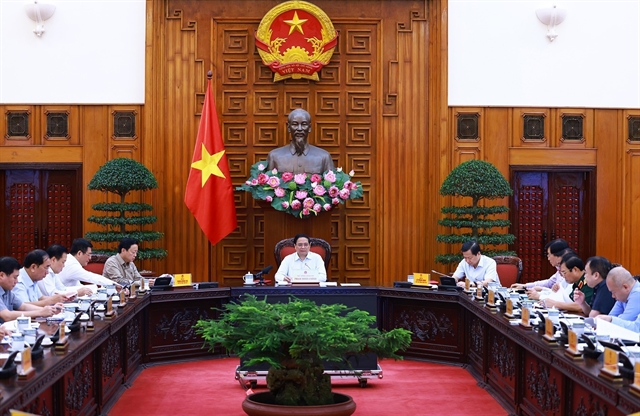 Opinion
Opinion

Mai Tiến Dũng, Minister and Chairman of the Office of the Government, talks to Thanh Niên (Young People) newspaper about the Key Performance Indicator, an effective tool to measure the quality of electronic government.
 |
| Mai Tiến Dũng. — Photo thanhnien.vn |
Mai Tiến Dũng, Minister and Chairman of the Office of the Government, talks to Thanh Niên (Young People) newspaper about the Key Performance Indicator, an effective tool to measure the quality of electronic government.
Will you please talk in detail about the concept of “electronic government” that is currently being used in our country?
In recent years, the Party and Government have paid special attention to the application of information technology in all domains of the national economy. So far we have tried to promote e-government and create quite a few ePortfolios in many fields, including enterprise registration, social insurance and others. At the moment, we’re trying to set up a database on the country’s population and one on land, and a multilateral dialogue channel between the Government and the people.
I should say that the e-Government is not simply applied in the fields of information technology and communication technology only. But in the course of developing an e-Government, the people and enterprises must be at its centre.
To have a workable e-Government, the Government should concentrate efforts to complete its institutional system, particularly the development of the Key Performance Indicator (KPI). Of course, the KPI will be made public. We’re confident that through the KPI, Government agencies will know what areas have been done well and what areas need further improvement.
Has the Government conducted any survey on how the general public uses the public on-line services?
According to statistics from the Government Office, in the second quarter of 2018, more than 2,400 public services are already available on-line. Though public on-line services have been applied nation-wide and won high appraisal from the general public, some of our public employees still prefer to work on paper, not on the electronic information system.
Don’t you think quite a few people are still reluctant to share their information/data with people from other offices?
I can’t agree more! To do this, I think that we need to have good cooperation between the Government Statistics Office with all ministries, sectors and localities nation-wide. At present we’re writing a draft Government resolution on the development of the e-Government for the period from 2018-20 and toward 2025. A guiding principle for writing the draft Government resolution is to integrate the data from the entire country, from the grassroots level to the central government level, as well as sharing data.
According to our plan, in 2019, we’ll develop a decree on information sharing and by late 2018, we’ll submit to the Prime Minister a proposal on how to connect and share data among all Government agencies.
Will you please talk a bit about the one-stop-shop plan for electronic local government?
We have visited some provinces, including Quảng Bình, Bắc Ninh and Đồng Nai, which have excelled in introducing the model of the one-stop shop for all required administrative papers. With the help of advanced technology, the four steps – paper submission, appraisal, approval and results returned – could be done in a single place. With this model, people don’t have to travel from one place to another but still get the result quickly. So the idea of a “one stop shop” should be introduced nation-wide. — VNS




